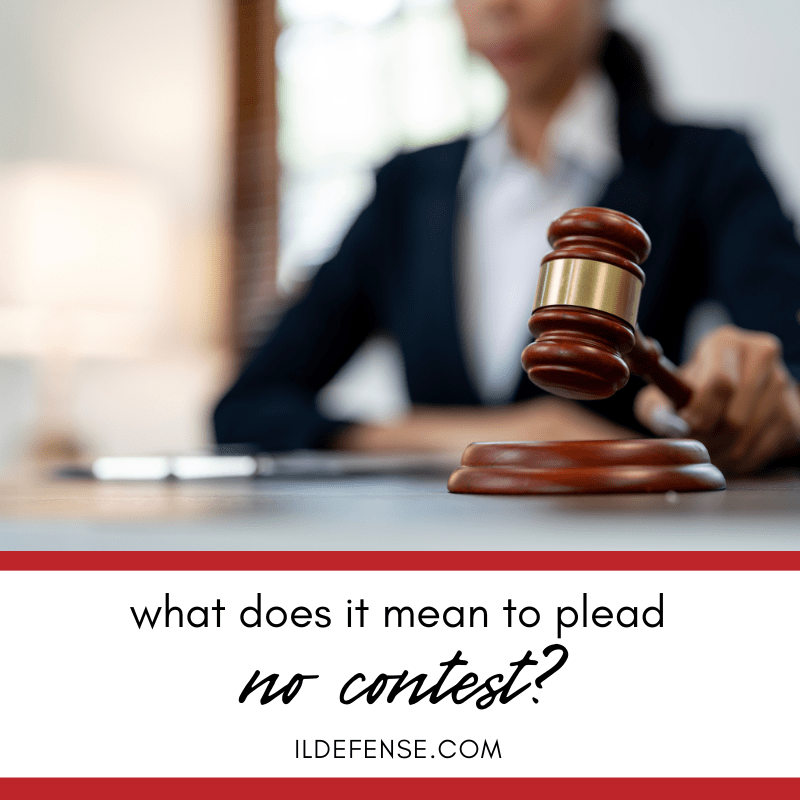
Understanding the implications of different plea options is crucial when facing criminal charges. One such option is to plead no contest. Knowing what it means to plead no contest can help you make informed decisions about your case.
What Does it Mean to Plead No Contest?
Pleading no contest, or “nolo contendere,” means that you do not admit guilt but also do not dispute the charges against you. This guide explains the following:
- The definition of a no contest plea
- Differences between no contest and other pleas
- Benefits of pleading no contest
- The process of entering a no contest plea
- Frequently asked questions
Here’s a closer look at each.
The Definition of a No Contest Plea
A no contest plea is an option available to defendants in criminal cases. When you plead no contest, you neither admit nor deny the charges against you. Instead, you accept the conviction and the associated penalties without making an admission of guilt. This can be particularly useful in cases where a related civil lawsuit might arise from the same set of facts.
Related: Criminal defense information
Differences Between No Contest and Other Pleas
Understanding the differences between no contest, guilty, and not guilty pleas is important. When you plead guilty, you admit to committing the crime and accept the penalties. A not guilty plea means you deny the charges and require the prosecution to prove your guilt in court. A no contest plea, however, means you do not dispute the charges, but you do not admit guilt either. Unlike a guilty plea, a no contest plea cannot be used against you as an admission of guilt in a related civil lawsuit.
Benefits of Pleading No Contest
Pleading no contest offers several benefits:
- Protection in Civil Cases: Since a no contest plea is not an admission of guilt, it cannot be used as evidence in a related civil lawsuit.
- Avoiding a Trial: By pleading no contest, you avoid the time, expense, and uncertainty of a trial.
- Possible Sentencing Benefits: In some cases, a no contest plea may lead to more favorable sentencing negotiations with the prosecution.
These benefits make a no contest plea a strategic choice in certain situations.
Related: Can a lawyer help you if you violate the conditions of your bond?
The Process of Entering a No Contest Plea
The process of entering a no contest plea involves several steps. First, you and your lawyer will discuss whether this plea is in your best interest. If you decide to proceed, you will formally enter the plea during a court hearing. The judge will ensure that you understand the implications of pleading no contest and that you are making the plea voluntarily. If the judge accepts your plea, you will move on to the sentencing phase. Your lawyer will be with you throughout this process to provide guidance and representation.
FAQ About Pleading No Contest
Check out these commonly asked questions about pleading no contest. If you don’t see your question here, please call our office and we’ll find you the answers you need.
Can I Plead No Contest to Any Charge?
Not all charges are eligible for a no contest plea. The decision is often at the discretion of the judge and depends on the specifics of the case. Your lawyer can advise you on whether this plea is an option for your situation.
How Does Pleading No Contest Affect My Criminal Record?
Pleading no contest results in a conviction on your criminal record, similar to a guilty plea. The key difference is that it cannot be used as an admission of guilt in civil court.
Is a No Contest Plea the Same as a Guilty Plea?
No, a no contest plea is not the same as a guilty plea. While both result in a conviction, a no contest plea does not involve admitting guilt, and it cannot be used against you in a related civil lawsuit.
Related: How the appeal process works in Illinois
Can I Change My Plea After Pleading No Contest?
In some cases, you may be able to change your plea after pleading no contest. However, this is generally difficult and depends on the specifics of your case and court rules. Consult your lawyer to explore your options.
What Should I Consider Before Pleading No Contest?
Before pleading no contest, consider the potential benefits and drawbacks, including the impact on related civil cases, the likelihood of a conviction, and the possible penalties. Discuss these factors with your lawyer to make an informed decision.
Do You Need to Talk to an Attorney?
If you’ve been accused of a crime, we may be able to help you – and don’t worry: It’s completely confidential. Call us at 847-920-4540 or fill out the form below to schedule your free, private consultation with an experienced and skilled Chicago criminal defense attorney now.
Contact Us
"*" indicates required fields








